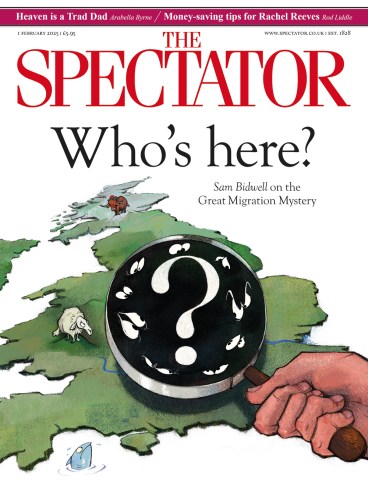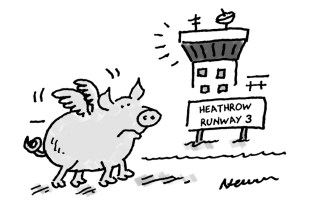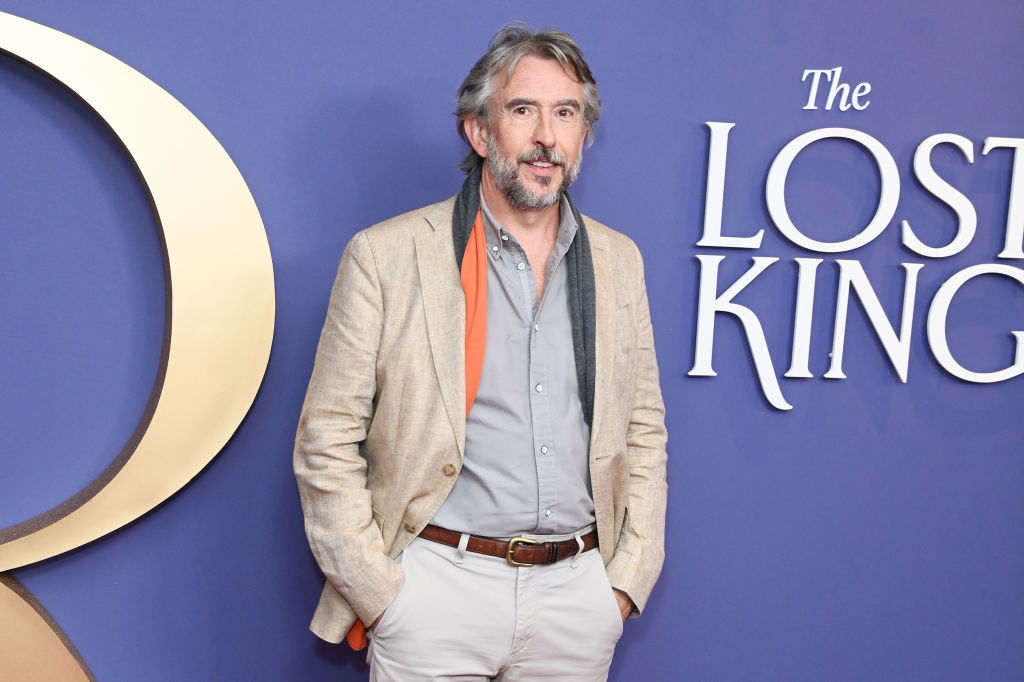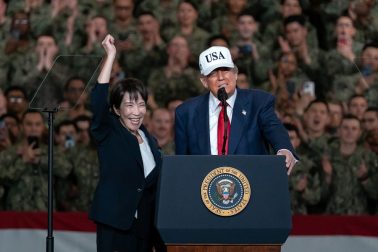
When a prime minister leaves No. 10, they usually discover the phone soon stops ringing. But there is at least a brief window when they are more popular with colleagues than they were in office. Why? The resignation honours list. It is a way to curry favour, settle debts and win back friends. While the thank-you list appears after a premiership is over, it can affect how a leader is remembered.
While the honours list appears after a premiership is over, it still affects how a leader is remembered
In keeping with her premiership, Liz Truss’s list was short – but it still became the subject of fierce debate in her inner circle during their final hours in No. 10. Boris Johnson’s was so lengthy that there were long discussions in Rishi Sunak’s Downing Street about how to handle the fallout. Sunak has taken six months to draft his. It is expected to be published in the coming weeks.
‘I’ve been trying to stay away from it,’ says one aide. ‘It’s all anyone wants to talk to me about.’ Those with knowledge of its contents say it is a little longer than first planned, but no Lavender List. Among the hopefuls are ex-advisers, former MPs and even a magazine editor, all awaiting entry into Britain’s most exclusive and generously upholstered retirement home.
There are also the Tory MPs who survived the election. While they were relieved on election night, some now look at the empty opposition benches and wonder whether life in the upper house might be more to their liking. However, Sunak has decided not to give sitting MPs peerages, for fear of triggering unhelpful by-elections. With the Tories polling third behind Labour and Reform, there is a desire to delay any meeting with the electorate. During the shadow cabinet meeting this week, the party chairman Nigel Huddleston gave a presentation on the May local elections. It was not particularly uplifting. He warned of difficult times ahead, given that most councils were last voted in at the high point of the post-pandemic Boris boom. Losses are expected, so candidates need to get out and campaign.
That prospect does not thrill all of the 121 Tory MPs – some of whom do not want to be in parliament by the next election. ‘Just look at some of the former ministers who have not taken shadow jobs,’ says one MP. ‘They know they can’t really drop Kemi in it and go, but their hearts are not really in it.’
Some of the Tory grandees were hoping Sunak might head off to California sooner rather than later – giving them cover to move to more lucrative careers. ‘A few of them would like Rishi to quit so that it’s acceptable and he carries the can,’ says a party figure. However, for now, Sunak is keen to prove his critics wrong.
Another group hoping for a mass exodus is former Tory MPs. There is no shortage of Tory ex-parliamentarians who are keen to return to Westminster. A common piece of tearoom gossip is working out which former MPs are buying second homes in safe seats that might become vacant in time. ‘Suffolk is nice at this time of the year,’ jokes one MP.
Penny Mordaunt, the former leadership hopeful, is regularly on the airwaves and has been talked up as a potential returnee. So too is Grant Shapps, who has launched ‘Conservatives Together’. This is pitched as a support group for current and prospective MPs, but it has no official link with Conservative Campaign Headquarters and is not endorsed centrally. Not everyone is enthused by the former cabinet minister’s efforts. ‘Grant’s campaign to get himself re-elected has been noticed,’ says a senior Tory. Other former MPs are looking to the mayoral races as a way to get back into politics.
Several former MPs have struggled to find work in the real world. Some miss the job they loved. Various reunion drinks have taken place, and have even been attended by the party chairman. One WhatsApp group is a source of increasing irritation to sitting MPs: the 2019-24 group. ‘It’s the group for all the Tory MPs from the last parliament, but everyone is still using it,’ explains a member. ‘It’s an extremely irritating group – they ask for graphics and lines to take,’ adds one MP. Some of the former MPs are bemused by the behaviour of their fellow fallen parliamentarians. ‘I cosplay Avengers – others cosplay being an MP.’
Personality politics aside, the prospect of ex-MPs returning raises a question about Kemi Badenoch’s Renewal project. Badenoch has said she plans to lead the party back to power by showing the voters that it’s under new management. How will that work if a large chunk of the candidates at the next election are ones whom the public rejected four years earlier?
When Keir Starmer embarked on his own renewal project, his chief lieutenant, Morgan McSweeney, made candidate selection one of his first tasks. It was a different situation – Starmer had taken over from Jeremy Corbyn, under whom the hard left had worked to push like-minded candidates through. Regardless, there was a general desire to improve the quality of candidates and find a mix of professions, from former soldiers to vaccine scientists. It was a way of signalling to voters that the party had changed.

Experienced candidates could potentially help Badenoch by garnering media attention. Yet the new guard are wary of the baggage. ‘The 2019-24 parliamentary party failed every which way. Wholesale renewal is needed,’ says a member of the 2024 intake. ‘Too many of them are more interested in the next job – who’s up, who’s down, playing games. Not enough time thinking about what a Conservative government is for.’
‘It’s renewal, not retread, and there is a strong sense we need to find fresh talent,’ says a shadow minister. The Conservative Network group – led by the former Tory MP David Johnston – is trying to connect with the 14 million who voted Tory in 2019 rather than focusing on the 130,000 party members.
No decisions have been made. The candidate selection team is depleted after the election, and the local campaigns are the priority. Badenoch’s director of strategy, Rachel Maclean, wrote to the 2024 losing candidates after Christmas to tell them that Badenoch would set ‘clear processes on adoption and readoption of parliamentary candidates’ in the months ahead. If Badenoch wants to demonstrate that her leadership really is new, some fresh faces might be what is needed.
Listen to Coffee House Shots, The Spectator’s daily politics podcast:








Comments